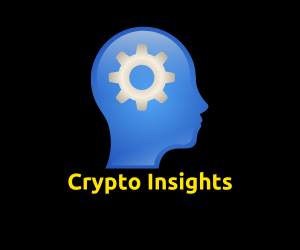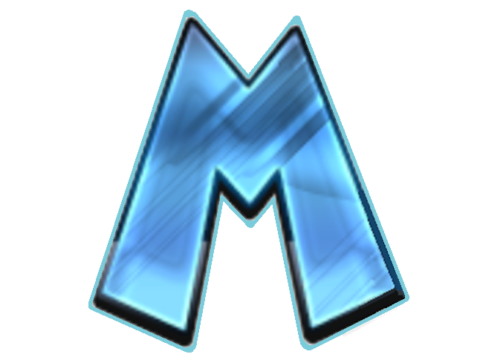
Cardano (ADA) has emerged as a significant player in the blockchain space, particularly in the realm of smart contracts. With its unique approach to blockchain technology, Cardano is reshaping the smart contract ecosystem by offering a scalable, secure, and innovative platform for decentralized applications (dApps). This article explores how Cardano is influencing the smart contract ecosystem, highlighting its key features, contributions, and future potential.
Understanding Smart Contracts
Smart contracts are self-executing contracts with the terms of the agreement directly written into code. They run on blockchain networks and automatically enforce and execute contract terms when predefined conditions are met. Smart contracts enable the creation of decentralized applications (dApps) and automate various processes without the need for intermediaries.
Cardano’s Approach to Smart Contracts
- Innovative Architecture
- Layered Architecture: Cardano employs a unique layered architecture that separates the settlement layer from the computation layer. The settlement layer handles ADA transactions, while the computation layer focuses on executing smart contracts and running dApps. This separation enhances flexibility and scalability, allowing for improvements in both layers independently.
- Ouroboros Protocol: Cardano’s Ouroboros Proof-of-Stake (PoS) protocol underpins its smart contract functionality. Ouroboros provides a secure and energy-efficient consensus mechanism, supporting the robust execution of smart contracts and ensuring the network’s integrity.
- Smart Contract Platform: Plutus
- Plutus Framework: Cardano’s smart contract functionality is powered by the Plutus framework, which provides a programming environment for writing and deploying smart contracts. Plutus is designed to be both functional and accessible, allowing developers to create complex dApps with high reliability.
- Haskell Language: Plutus is based on the Haskell programming language, known for its strong type system and mathematical rigor. This choice enhances the security and correctness of smart contracts, reducing the likelihood of bugs and vulnerabilities.
- Marlowe for Financial Contracts
- Marlowe Framework: Cardano also offers Marlowe, a domain-specific language designed for creating financial contracts. Marlowe simplifies the development of financial applications by providing a high-level language tailored to the needs of financial agreements and transactions.
- Accessibility: Marlowe is intended to be accessible to non-programmers, allowing users to design and execute financial contracts without deep technical knowledge. This democratizes the development of financial dApps and broadens Cardano’s appeal in the financial sector.
Contributions to the Smart Contract Ecosystem
- Enhanced Security
- Formal Verification: Cardano emphasizes formal verification, a process that mathematically proves the correctness of smart contracts. This approach enhances the security of smart contracts by ensuring they operate as intended and are free from critical errors.
- Rigorous Testing: Cardano’s development process includes extensive testing and peer-reviewed research. This commitment to quality and security helps prevent vulnerabilities and ensures the reliability of smart contracts on the network.
- Scalability and Efficiency
- Scalable Solutions: Cardano’s PoS consensus mechanism and layered architecture contribute to its scalability. By efficiently handling high transaction volumes and smart contract execution, Cardano supports a growing ecosystem of dApps and users.
- Low Transaction Costs: Cardano’s efficient design aims to keep transaction fees low, making it an attractive option for developers and users seeking cost-effective smart contract solutions.
- Interoperability
- Cross-Chain Integration: Cardano is focused on enhancing interoperability with other blockchain networks. By supporting cross-chain communication, Cardano aims to enable seamless interactions between its smart contracts and those on other platforms, fostering a more connected and collaborative blockchain ecosystem.
- Developer Ecosystem
- Support for Developers: Cardano provides extensive resources and support for developers through its developer portal, documentation, and community forums. The platform’s commitment to developer engagement helps drive innovation and the creation of diverse dApps.
- Grants and Funding: Cardano offers grants and funding opportunities to support the development of dApps and smart contracts. These initiatives encourage the growth of its ecosystem and incentivize developers to build on the Cardano platform.
Future Potential
- Expanding Use Cases
- Growing Ecosystem: As Cardano continues to evolve, its smart contract capabilities are expected to support a broader range of use cases. Emerging applications in DeFi, NFTs, and enterprise solutions will likely contribute to the platform’s growth and adoption.
- Innovative Features: Future upgrades and developments on the Cardano network may introduce new features and improvements, further enhancing its impact on the smart contract ecosystem.
- Global Adoption
- Strategic Partnerships: Cardano’s partnerships with enterprises and institutions are likely to drive global adoption of its smart contract technology. By integrating with various industries and markets, Cardano aims to establish itself as a leading platform for decentralized applications.
Conclusion
Cardano’s impact on the smart contract ecosystem is marked by its innovative technology, commitment to security, and focus on scalability and interoperability. Through its Plutus and Marlowe frameworks, Cardano is empowering developers to create robust and reliable dApps, while its unique architecture and PoS consensus mechanism enhance the platform’s efficiency and growth potential. As Cardano continues to advance, its contributions to the smart contract ecosystem will play a crucial role in shaping the future of decentralized technology and digital finance.









